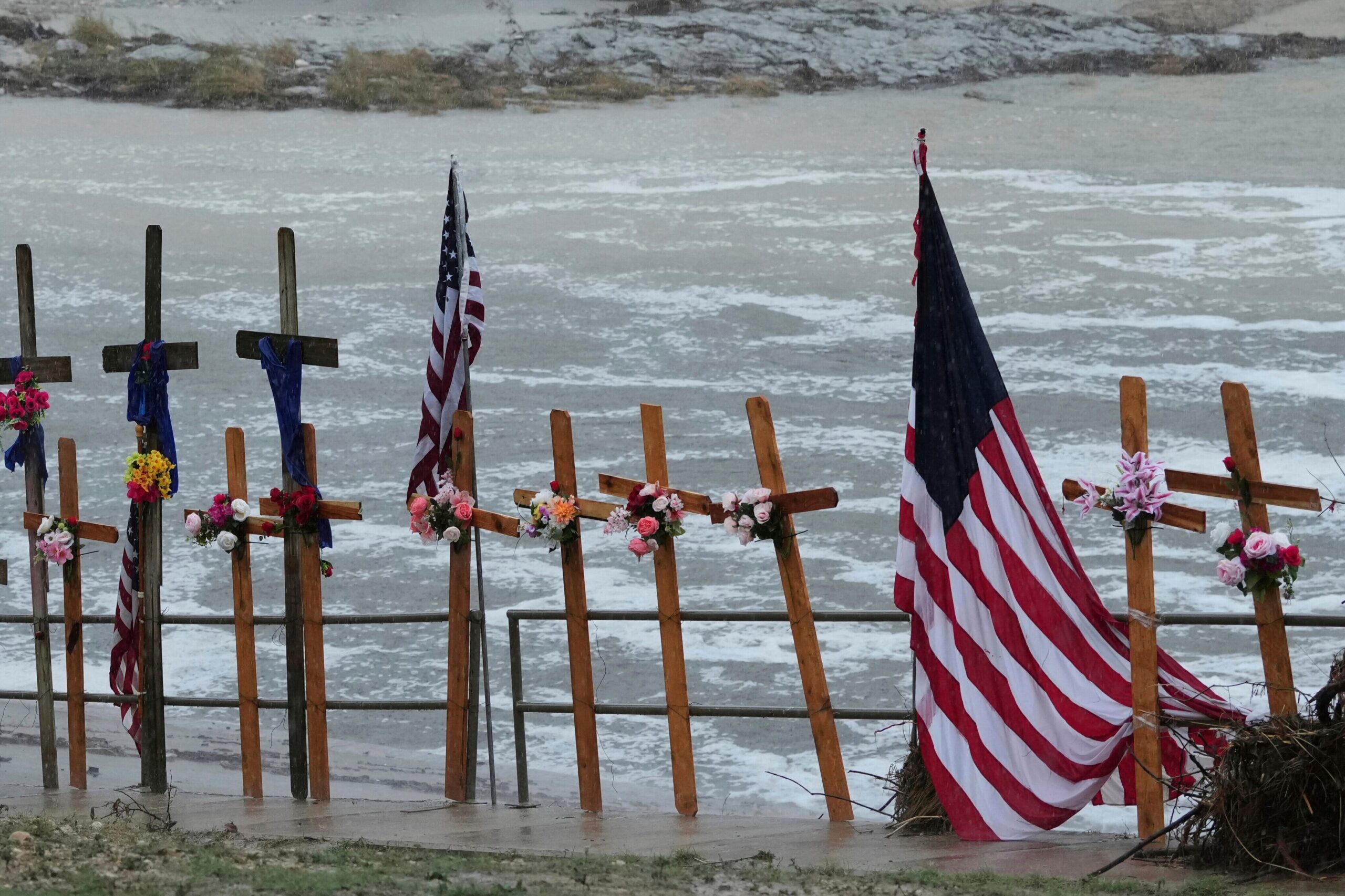It’s called ambiguous loss
Ganz is experiencing what grief experts refer to as ambiguous loss, which is the anguish of living without a loved one whose fate is unknown, much like the relatives of the missing following the July 4 Texas floods did for a large portion of this month. Unfortunately, people from all walks of life are aware of it. The missing from the September 11 attacks, the tsunamis in the Indian Ocean and Japan, the earthquake in Turkey and Syria, the Israel-Hamas conflict, and the Russian invasion of Ukraine are examples of ambiguous loss. It can also be personal, as Ganz’ experience was.
Pauline Boss, the researcher who first used the term in the 1970s, claims that the key characteristic is the lack of customs like wakes, funerals, or dumping dirt on graves to aid the bereaved families in coming to terms with their loss. According to experts, the only way to move forward is to learn to live with uncertainty, which is a concept that is not generally received in Western cultures.
Boss, a professor emeritus at the University of Minnesota who has studied ambiguous loss worldwide for fifty years, stated that we are currently in a mentality and a national situation where you either win or you lose, it’s either black or it’s white. To overcome the binary, you must let go of it, and some people never do. They’re frozen. They’re stranded.
According to Sarah Wayland, a professor of social work at Central Queensland University in Sydney, ambiguous loss differs from grief in that it involves recurrent exposure to trauma from social media and the 24-hour news cycle. Then, when attention has shifted to something else, a terrible silence falls upon those who remain.
They could be living in this place of both hope and horror,” Wayland remarked. And they are going through this loss in both their private and public lives.
The uncertainty is like a knife constantly making new cuts
As of last week, at least 132 people had been killed and almost 200 were still missing after heavy rains pushed a wall of water across the Texas Hill Country in the middle of the night on July 4. However, as this week has progressed, the number has decreased. At Comfort, Texas, the Guadalupe River swelled from hip-height to three stories in about two hours, sending water as heavy as the Empire State building downstream approximately every minute it was at its crest.
People who have no remains to bury have been trapped in a particular state of horror, numbness, and uncertainty. According to Boss, the idea that a loved one has passed away is unthinkable.
Any worldwide situation can evoke this emotion. The 39-year-old Lidiia Rudenko speaks for a group of Ukrainian families whose loved ones are missing in combat. Since his marine brigade engaged the Russian army near Krynky on June 24, 2024, her spouse, Sergey, 41, has been missing. Since the Russian invasion in 2022, tens of thousands of Ukrainians have gone missing, including him. She is also one of thousands of people left behind in Ukraine.
According to Rudenko, some people experience grief to the point that they are unable to act or think, while others begin to act as soon as possible and take matters into their own hands, as I did. She said, “There are days when you can’t get out of bed.” We sometimes refer to it as becoming ill. We also give ourselves permission to get a bit sick, cry, get through it, and then fight again.
Leah Goldin was among the very few individuals in Israel who held the questionable distinction of being a hostage’s family for almost ten years.
On August 1, 2014, her 23-year-old son, Hadar Goldin, a second lieutenant in the Israeli army, was slain and his body removed. The Israeli army concluded that Goldin had been killed after discovering a blood-soaked tunic, prayer fringes, and other evidence in the tunnel where his body had been kept, she added. His remains have never been found again.
The normal fluctuations of sadness did not align with her family’s path. At the request of Israel’s military rabbis, they held what Leah Goldin now refers to as a “pseudo-funeral,” complete with Goldin’s shirt and fringes. However, the persistent uncertainty was like a knife that kept cutting.
The Goldin family devoted themselves into trying to assist hundreds of relatives of the 251 individuals who Hamas had carried into Gaza in the hazy days following the group’s October 7, 2023, raid on southern Israel. However, as support for the Oct. 7 hostages grew, the Goldins were temporarily shunned.
According to Leah Goldin, we were a representation of failure. We’re not like you, someone said. Our children will return shortly. She sympathized with their anxiety, but the suggestion crushed Goldin, who had fought for ten years to have Hamas return her son’s body. She eventually gained more acceptance from the hostage families, who took note of her experience.
Less than half of the 50 Israeli prisoners that Hamas still possesses are thought to be alive. According to Gaza’s Health Ministry, Israel’s offensive has killed around 59,000 Palestinians, with women and children accounting for more than half of the deaths. The ministry does not specify the number of militants killed, but it does state that women and children have made up the majority of the dead. It is estimated that many of the deceased are interred beneath debris all across the area.
How to support families of the missing and what’s not helpful
Ganz, whose husband vanished in Missouri in April, said that initially, the sheriff’s office and other agencies conducted a thorough search. She shared flyers on social media and throughout the town where his automobile was discovered. Then, without any evidence, someone accused her of grieving, a charge that still infuriates her.
People saying, “If you need anything, please let me know,” has been one of my major annoyances, Ganz remarked. She stated that puts the onus on her and that it has been difficult to get follow-through. There is enough ambiguity here already.
In an effort to dispel the myth that men are weak, she is considering establishing a nonprofit organization in Jon’s honor that would focus on eradicating the stigma associated with seeking therapy. That is consistent with Rudenko’s experience in Ukraine and Goldin’s belief that action can help heal loss.
Boss suggests holding distinct community gatherings for the families of the missing and the confirmed dead. A specific acknowledgement is useful for the latter: You must first inform the folks that you are experiencing an uncertain loss. Due to the lack of a resolution, it’s one of the most challenging types of losses. The boss said, “It’s not your fault.”
According to Rudenko, it is helpful to understand that everyone else and the families of the missing live in two distinct worlds in Ukraine.
People who have not experienced ambiguous loss will never find the perfect words, so sometimes we don’t need them, she added. Sometimes all we need is a hug and some quiet time.
Thanks to AP
Thanks to AP
Thanks to AP
Thanks to AP
Thanks to AP
Thanks to AP
Thanks to AP
Thanks to AP






